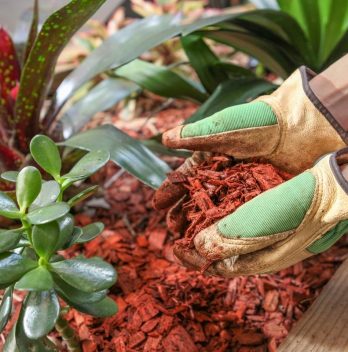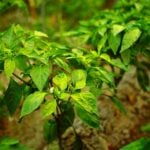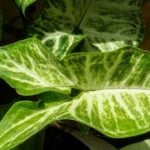Understanding the cedar mulch pros and cons is an added advantage for farmers who intend to use it for mulching purposes.
Cedar mulch is a natural product that adds beauty and charm to your garden. It comes from the waste material of the cedar tree. Cedar trees are majestic trees whose origin comes from the Himalayas and the Mediterranean basin.
These trees grow fast and straight making both the wood and mulch obtained renewable. The mulch is one of the favorites of many farmers due to its many benefits.
What Exactly Is Cedar Mulch?
Cedar mulch comes from shavings and clippings of the bark of the cedar trees. It is a by-product of the wood industry from these commonly sought trees. It is used by farmers to cover the gardens and keep the

This mulch has an insect repellant effect on the
What Are Cedar Mulch Pros And Cons?
Each type of mulch comes with its advantages and disadvantages. This makes a huge difference in your garden. Mulch has qualities and drawbacks that are obvious.
Cedar is well known for some outstanding qualities that are an added advantage to your garden. Here are some of those qualities.
Cedar Mulch Pros And Benefits
Is an insect repellant. This is one reason why most gardeners use it. Insects do not like the smell of cedar mulch so they stay away from it. That means they stay away from your garden too.
Lasts longer. Compared to other organic mulches like pine mulch, bark, and straw, it stays longer. Cedar mulch is known to last for years once you put it in your garden.
Has a beautiful natural color. A warm reddish-brown hue is what you get or you choose to color it for an aesthetic purpose which is beautiful too.
Is generally a great ground cover. This is a key quality in choosing the type of mulch you want to use.
100% Natural Cedar Wood Chips | Mulch
Read more about Gypsum Soil Amendment
Cedar Mulch Cons In Garden
Let’s be clear here, cedar mulch is not 100% perfect. It has its downsides and it’s best when you know them before you plan on using it.
Expensive: This mulch costs more than the average mulch.
Repels pollinators and beneficial insects. This is the flip side of the pest control quality of cedar mulch. It affects the ecosystem negatively! Don’t use it if you are planting fruit trees or want your plants to produce flowers.
Releases acetic acid which negatively affects your plants. This only occurs if the mulch has not received enough oxygen when it was stored after production.
Loses colorfast. If you chose it because it was attractive, note that the color will fade off fast.
Has a strong scent. Most people find it nice because it is natural while others find it unpleasant.
FAQs
Are there advantages to cedar mulch?
You can use it in your vegetable garden and you’ll fin it holds moisture well and doesn’t burn easily. It also has a long life and will not rot.
It seems like it would be a great option for the hot weather but I’m not sure if it’s a good idea for the colder temperatures that we have in the winter.
Does cedar mulch hurt plants?
No. Cedar mulch is not harmful to plants, but it may harm insects such as ants. You could use cedar mulch in beds or borders, but if you are trying to protect plants from pests and other animals, it may be harmful to insects such as ants.
Which is better cedar or hardwood mulch?
Hardwoods and softwoods are both good choices, and you’ll find that they can be used interchangeably in many cases.
Cedar is not recommended as a mulch because it has a tendency to attract insects, and if the mulch gets wet, it can rot. However, if you’re using cedar to help prevent soil from drying out, it’s fine. It also helps to protect the trees against disease and pests.
Does cedar mulch have chemicals?
Cedar mulch does not have any chemicals in it. It is natural and is made from the wood of cedar trees. However, there are some potential risks. The biggest problem is that cedar mulch is very porous and will allow water to seep through, which can cause rot.
If you want to mulch with cedar, you’ll need to apply a barrier, like a plastic film.
Which is better pine or cedar mulch?
Cedar has a tendency to dry out much faster, especially if it isn’t properly mulched.
It’s also more expensive. Pine mulch doesn’t rot as fast, but it can be harder to work with and get under your plants.
Is it OK to put cedar mulch in a vegetable garden?
It’s OK, but cedar mulch is not as good as other mulches for growing vegetables. Cedar is a good wood for building because it has a natural insecticide and does not rot. Cedar mulch also holds moisture well and is good for keeping the soil cool. However, cedar mulch is not the best mulch for growing vegetables because it tends to be a bit acidic.
This means that it will not be as good a fertilizer or a mulch for vegetables as other types of mulch. If you are putting cedar mulch on top of the soil in your vegetable garden, you should put some other mulch on top of that. You could use straw or leaves, for example, instead of cedar mulch. If you do decide to use cedar mulch, you need to make sure that you are using it in a way that is safe for your plants and safe for the environment. When you use cedar mulch, you can be sure that you are not adding any harmful chemicals to the soil. In addition, you are also reducing the amount of greenhouse gases that your plants produce. One way to use cedar mulch is to put a layer of it around the outside of your garden. This will help to keep insects away from your vegetables. The cedar mulch will also help to prevent weeds from growing in your garden.
This means that it will not be as good a fertilizer or a mulch for vegetables as other types of mulch. If you are putting cedar mulch on top of the soil in your vegetable garden, you should put some other mulch on top of that. You could use straw or leaves, for example, instead of cedar mulch. If you do decide to use cedar mulch, you need to make sure that you are using it in a way that is safe for your plants and safe for the environment. When you use cedar mulch, you can be sure that you are not adding any harmful chemicals to the soil. In addition, you are also reducing the amount of greenhouse gases that your plants produce. One way to use cedar mulch is to put a layer of it around the outside of your garden. This will help to keep insects away from your vegetables. The cedar mulch will also help to prevent weeds from growing in your garden.
Conclusion
Cedar mulch pros and cons help you determine early enough what type of mulch to choose for your garden. Even with the consideration of the plants to grow!






